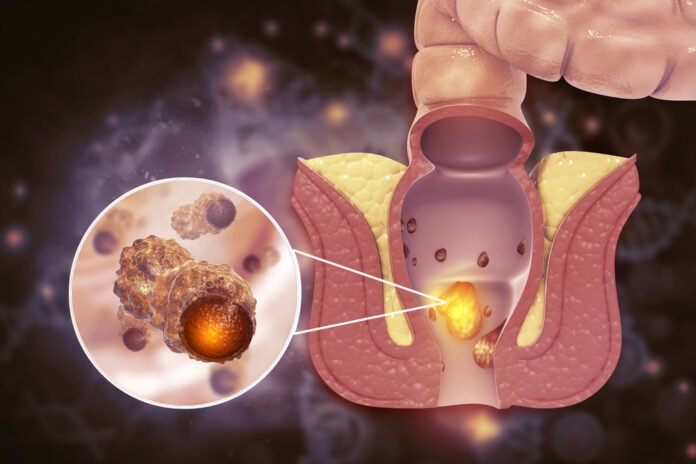Are you suffering from piles and wondering if they will go away without treatment? Understanding whether piles can dissolve on their own or require treatment from a specialist doctor in Karachi, such as Dr. Abdullah Iqbal, is critical for effectively treating this disease. In this detailed guide, we’ll look at the factors that determine whether piles will go away on their own, the signs indicating the need for treatment, and the effective treatment choices available from a pile’s specialist in Karachi.
How Do Piles Develop?
Piles, also known as hemorrhoids, are swollen and inflamed blood vessels in the rectum or anus. They can develop internally or externally and may be caused by various factors, including:
- Straining during bowel movements
- Chronic constipation or diarrhea
- Obesity
- Pregnancy
- Aging
While some individuals may experience mild or occasional symptoms of piles that resolve on their own, others may require treatment from a specialist doctor for more severe or persistent cases.
Can Piles Go Away on Their Own?
In some instances, mild cases of piles may resolve on their own without the need for specific treatment. Factors influencing whether piles can go away on their own include:
- Severity of Symptoms: Mild symptoms such as minor discomfort, itching, or small amounts of bleeding may improve with self-care measures, such as dietary changes and over-the-counter medications.
- Size and Location of Piles: Small, internal piles or external piles that are not causing significant symptoms may shrink and resolve spontaneously over time.
- Underlying Causes: Addressing underlying factors contributing to the development of piles, such as improving bowel habits or managing constipation, may help alleviate symptoms and facilitate the natural healing process.
When Should You Seek Treatment for Piles?
While piles may resolve on their own in some cases, seeking treatment from a specialist doctor in Karachi, like Dr. Abdullah Iqbal, is advisable if you experience:
- Persistent Symptoms: Symptoms such as persistent pain, bleeding, swelling, or discomfort that do not improve with self-care measures warrant evaluation by a piles specialist.
- Recurrent Episodes: If you experience recurrent flare-ups of piles or ongoing symptoms despite previous treatment attempts, consulting a specialist doctor is essential to identify underlying causes and develop an effective treatment plan.
- Complications: Complications of piles, such as thrombosis (formation of blood clots), prolapse (protrusion of piles outside the anus), or infection, require prompt medical attention to prevent further complications and ensure appropriate management.
What Treatment Options Are Available for Piles?
A skilled piles specialist doctor in Karachi can offer a range of treatment options tailored to your specific condition and symptoms. Some common treatments for piles include:
Conservative Management:
- Dietary modifications: Increasing fiber intake, staying hydrated, and avoiding straining during bowel movements can help alleviate symptoms and prevent constipation, which can exacerbate piles.
- Topical treatments: Over-the-counter creams, ointments, or suppositories containing ingredients such as witch hazel or hydrocortisone may provide relief from itching, inflammation, and discomfort.
- Sitz baths: Soaking the anal area in warm water for 10 to 15 minutes several times a day can soothe irritated tissues and promote healing.
Minimally Invasive Procedures:
- Rubber band ligation: This procedure involves placing a rubber band around the base of the hemorrhoid to cut off its blood supply, causing it to shrink and fall off within a few days.
- Sclerotherapy: Injection of a chemical solution into the hemorrhoid to shrink and scar the tissue, reducing blood flow and symptoms.
- Infrared coagulation: Application of heat to the hemorrhoid using a specialized device to coagulate and shrink the swollen veins.
- Laser treatment: Use of laser energy to target and seal off the blood vessels supplying the hemorrhoid, resulting in shrinkage and symptom relief.
Surgical Interventions:
- Hemorrhoidectomy: Surgical removal of hemorrhoids using traditional or minimally invasive techniques, typically reserved for severe or recurrent cases that do not respond to conservative or minimally invasive treatments.
- Stapled hemorrhoidopexy: A surgical procedure that involves stapling and repositioning the prolapsed hemorrhoidal tissue to its normal position within the anal canal.
Can Piles Recur After Treatment?
While treatment can effectively alleviate piles symptoms and promote healing, there is a risk of recurrence, especially if predisposing factors such as constipation or straining persist. To minimize the risk of recurrence, it’s essential to follow your doctor’s recommendations regarding dietary and lifestyle modifications, maintain regular follow-up appointments, and address any underlying factors contributing to piles development.
How Can a Piles Specialist Doctor in Karachi Help You?
A piles specialist doctors in Karachi, like Dr. Abdullah Iqbal, offers specialized expertise in diagnosing and treating piles using advanced techniques and personalized care. Here’s how a best general surgeon in Karachi can assist you:
- Comprehensive Evaluation: Abdullah Iqbal conducts a thorough evaluation of your symptoms, medical history, and diagnostic tests to accurately diagnose the severity and underlying causes of your piles.
- Individualized Treatment Plan: Based on your specific condition and treatment goals, Dr. Abdullah Iqbal develops a personalized treatment plan tailored to address your symptoms effectively and minimize the risk of recurrence.
- Minimally Invasive Procedures: Abdullah Iqbal performs minimally invasive procedures such as rubber band ligation or sclerotherapy to treat internal piles, providing relief from symptoms with minimal discomfort and downtime.
- Surgical Expertise: In cases requiring surgical intervention, Dr. Abdullah Iqbal utilizes advanced surgical techniques to perform hemorrhoidectomy or other surgical procedures with precision and optimal outcomes.
Conclusion
While some cases of piles may resolve on their own with self-care measures, seeking treatment from a specialist doctor in Karachi, like Dr. Abdullah Iqbal, is essential for persistent or severe symptoms. By understanding the factors influencing the resolution of piles and the available treatment options, you can make informed decisions about managing this condition effectively. Consult a piles specialist doctor like Dr. Abdullah Iqbal for expert evaluation, diagnosis, and personalized treatment to alleviate symptoms and improve your quality of life.
Don’t forget to check out the other insightful and informative healthcare blogs available on our platform.
